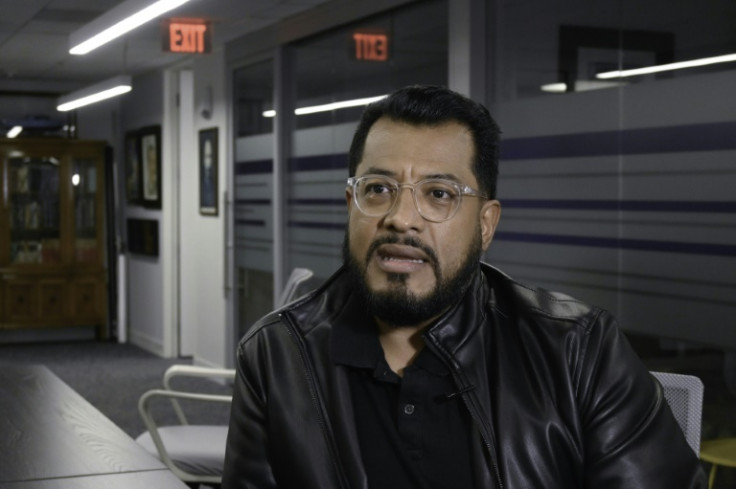
A year ago, Felix Maradiaga, who was imprisoned while running for president against Nicaragua's increasingly authoritarian leader Daniel Ortega, was freed and exiled to the United States.
The 47-year-old had been arrested along with several other opposition candidates months before the country's November 2021 vote, while Ortega went on to claim a fourth consecutive term.
Now living in Miami, Maradiaga spoke with AFP about his ordeal, including his 611-day detention and exile to the United States.
"I live in Nicaragua. My body sleeps outside the country... but my purpose and my thoughts are set on the freedom of Nicaragua," he said.
One of 222 detained members of Nicaragua's opposition who were freed on February 9, 2023, Maradiaga characterizes his year in exile as "a bittersweet experience."
After weeks of quiet talks with US diplomats, Nicaragua allowed the detainees to board a chartered flight to Washington.
"Having the opportunity to come to the United States and hug my daughter Alejandra, see my wife, my mother, is like coming back to life," he said.
But he added "no person who loves his country can say that freedom is being exiled."
When Maradiaga was 12, he arrived in the United States as an unaccompanied migrant, fleeing the civil war. Finding himself in exile in the same country as an adult, he said was "like living a trauma twice."
Maradiaga characterizes his long imprisonment as an "extreme process" that "requires healing."
Dozens of opposition figures were arrested in 2021 -- including seven presidential hopefuls -- and accused of undermining "national integrity."
The ability to lead becomes difficult after "the emotional damage that torture, permanent humiliation, interminable interrogations, isolation, and beatings" can cause, Maradiaga said.
"You cannot lead from hatred, you cannot build free, open and fair societies from that feeling."
He is now engaged in influencing "global public opinion" on Nicaragua, including documenting human rights violations, working with his country's opposition, and lobbying for international sanctions.
He also leads a nonprofit, the Foundation for Freedom of Nicaragua.
Maradiaga's warning to those nations wondering how to deal with Nicaragua?: "Take the threat from China, Russia and Iran very seriously," he said, adding that Ortega's strength is linked to the advance of China in Latin America.
A firebrand Marxist in his youth, Ortega was a guerrilla in the Sandinista movement that initially took power in 1979 after toppling the US-backed Somoza family dictatorship.
The United States supported armed resistance to Ortega and the Sandinista rulers, in one of the most controversial interventions in the last decade of the Cold War.
Defeated in 1990, Ortega returned to power in 2007, and has since engaged in increasingly authoritarian practices, quashing presidential term limits and seizing control of all branches of the state.
"Certain key sectors, particularly in business circles and some intellectuals, believed that Sandinismo could be given a second chance," Maradiaga said, calling it a "serious mistake."
What must happen for the country to change?: "It is very complicated," said Maradiaga, likening Nicaragua to "a tropical North Korea."
In 2018, hundreds of people were sent to prison in the wake of anti-government protests that were met with a brutal crackdown resulting in 355 deaths and more than 100,000 people fleeing into exile.
"The opportunity for a transition via the electoral route has already passed," Maradiaga said, adding that Ortega realizes he can no longer play by democratic rules if he wants to stay in power.
"So he decided to radicalize, dismantle all democratic institutions and move to a one-party model."
"As long as there is no international pressure on Ortega, those sparks (of local resistance) will not have much impact, and vice versa," Maradiaga warned.
Asked if he remained hopeful, Maradiaga replied: "Without a high dose of optimism, it is not possible to carry out this work."




